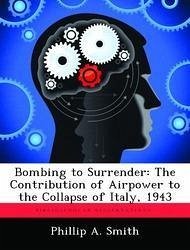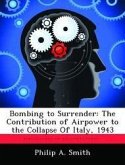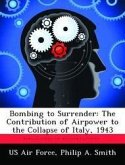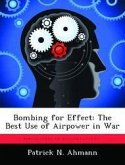Throughout this first century of air power, military theorists have proposed numerous schemes as the best use of air power. Airmen of many nations tried and tested these theories in wars large and small and they have learned, ignored, or forgotten many lessons. Of the four major coercive mechanisms available to air power-punishment, risk, military denial and decapitation-Robert Pape in Bombing to Win, concludes that military denial is the best use of air power. Furthermore, Pape argues that recent technological advances only enhance the military denial mechanism. In his appendix, Pape categorizes the Italian case as another case of successful military denial. This study examines the collapse of Italy in 1943 and the contribution of air power to this collapse. Several broad works, often citing Ernest May in "Lessons" from the Past, claim that air power decisively caused the Italian surrender, but do not indisputably argue this point nor do they define the coercive mechanism(s) air power employed to achieve this result. Studies such as the United States Strategic Bombing Survey or the British Bombing Survey Unit largely ignore Italy or in the case of F. W. Deakin's The Brutal Friendship, cite the coalition politics as the primary cause of Italy's surrender.
Hinweis: Dieser Artikel kann nur an eine deutsche Lieferadresse ausgeliefert werden.
Hinweis: Dieser Artikel kann nur an eine deutsche Lieferadresse ausgeliefert werden.








